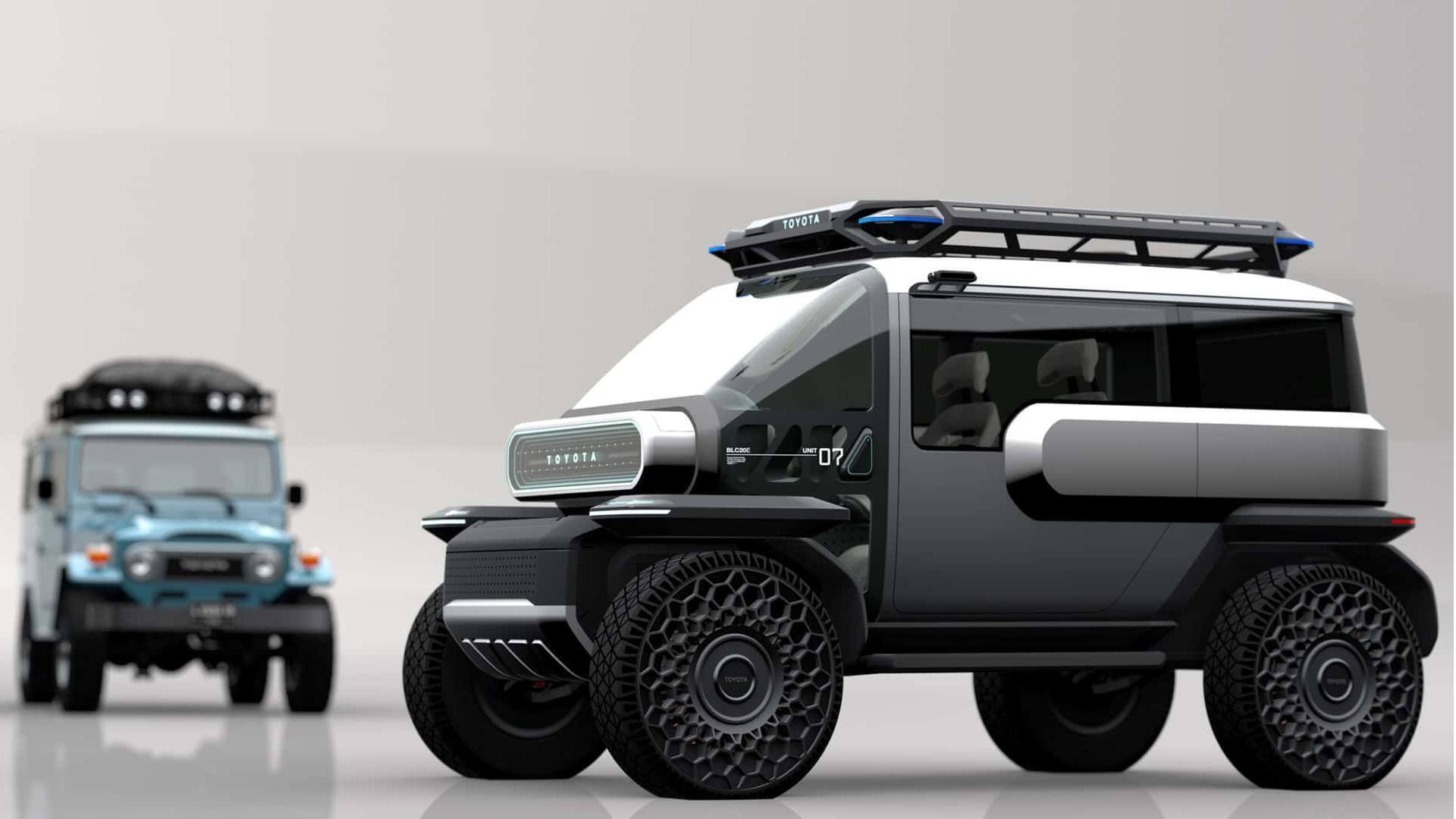
Toyota's Moon rover concept looks like a miniature Land Cruiser
What's the story
Toyota has unveiled its Baby Lunar Cruiser (BLC) concept. The compact lunar rover is designed to tackle challenging terrain both on Earth and in space.
The concept vehicle was revealed during the 50th-anniversary celebration of Calty Design Research, the automaker's design division in the US.
The concept borrows design elements from the iconic FJ40 Land Cruiser, featuring bold "TOYOTA" lettering on the front and a large windshield canopy that wraps around the grille for excellent forward visibility.
Design
It features an innovative cabin with cutting-edge technology
Inside the Baby Lunar Cruiser concept, you'll find a digital dashboard with support for augmented reality, dual joysticks for controlling the vehicle, MOLLE panels, and adjustable spaceframe seats.
The vehicle also comes with an array of cameras and sensors, a split-type tailgate, and wheel-mounted electric motors.
Inspired by Toyota's partnership with the Japanese Aerospace Exploration Agency to develop a moon rover, the BLC offers a sneak peek into the future of lunar exploration vehicles.
Technology
Impressive range of over 10,000km with fuel cell technology
Toyota believes its Baby Lunar Cruiser concept could potentially travel a distance of over 10,000km using the advanced fuel cell technology.
This remarkable range is just under 1,000km shy of covering the entire equatorial circumference of the moon.
While refueling concerns may come up, the BLC's extensive range showcases the Japanese marque's dedication to pushing the limits of lunar exploration.
Future
Various automakers are competing in the lunar exploration race
Toyota isn't the only automaker pursuing lunar exploration vehicles. Earlier this year, the Hyundai Motor Group announced plans to develop a lunar exploration rover using components from its Hyundai and Kia brands.
Additionally, General Motors has teamed up with Lockheed Martin to create a minimalist lunar vehicle for Project Artemis, the US's mission to return to the moon.
With several automakers competing in lunar exploration, the future of space travel is set to become even more thrilling.